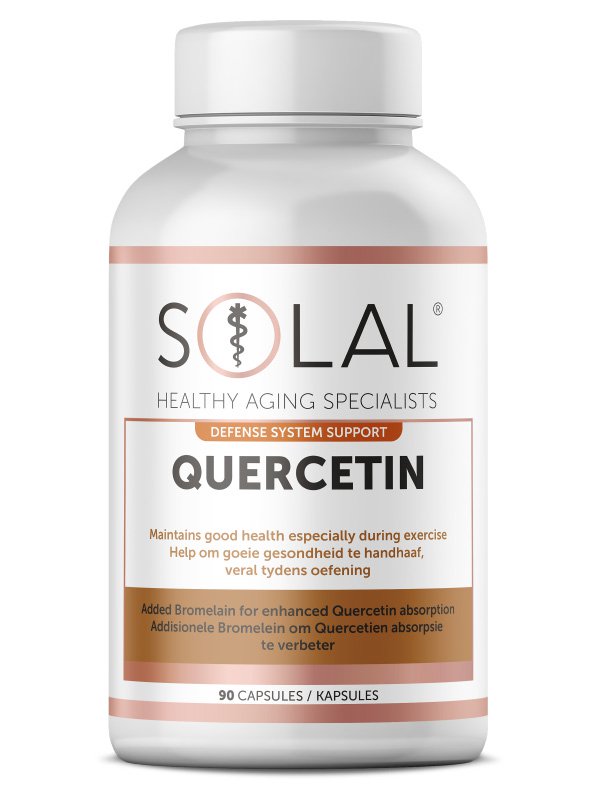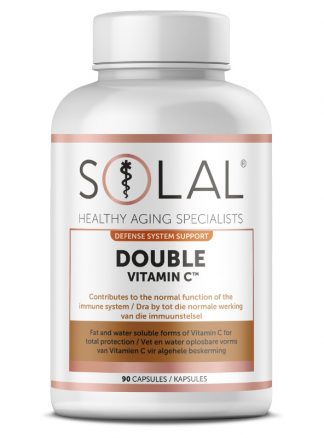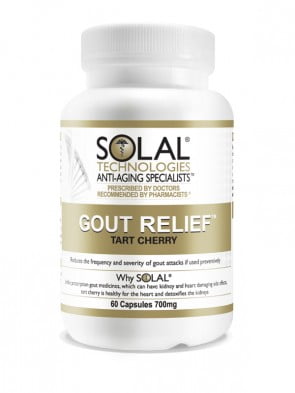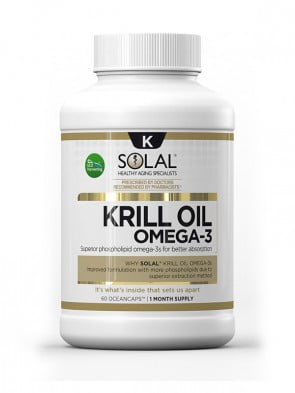Description
Solal Quercetin
A flavonoid extracted from fruit. It supports healthy immune function and has anti-allergy and antiviral effects. Quercetin also reduces the risk of death from coronary artery disease. Ordinarily quercetin is not well absorbed from the intestine, but bromelain enzymes are included in SOLAL Quercetin for improved quercetin absorption and effectiveness.
Indications
Quercetin is a flavonoid antioxidant extracted from fruit. It supports healthy immune function and maintains good health especially during exercise. Ordinary quercetin is not well absorbed from the intestine, however SOLAL® adds bromelain enzymes to improve absorption.
Product Composition
Each capsule contains the following active ingredients:
| Quercetin | 267mg |
| Bromelain | 35mg |
Inactive ingredients: Hypromellose (cellulose) vegetarian capsule shell (gelatine free), microcrystalline cellulose, magnesium stearate (vegetarian – flow agent), magnesium silicate, silicon dioxide and colloidal silicon dioxide.
Contains plant extracts and natural fillers, with no colourants added – therefore the colour of the capsule contents may vary slightly from batch to batch.
Sugar-free.
Storage Instructions
Store in a cool dry place below 25°C. Keep out of reach of children.
Pharmacological Action
Dietary quercetin glycosides are hydrolysed in the intestine to produce the aglycone, and also undergo deglycosidation by enterobacteria. The aglycone is then conjugated to glucuronides or sulphates for absorption. Quercetin is present in the plasma glucuronides, sulphates and O-methylated derivatives, with only small quantities of the aglycone. Quercetin has antioxidant, anti-inflammatory and cardio-protective effects. The antioxidant effect is attributed to the cathechol-B ring and the location of the hydroxyl substitutions. The antioxidant effect is due to its ability to be converted to substances that release reactive oxygen species. The anti-inflammatory effects of quercetin are due to its inhibition of the production and activity of leukotrienes and prostaglandins, and inhibition of histamine release by basophils and mast cells. Animal studies indicate that quercetin inhibits cox-2 enzymes and also NF-kB which controls expression of genes encoding pro-inflammatory cytokines. Quercetin has demonstrated activity against retroviruses, herpes simplex, polio, parainfluenza and respiratory syncytial viruses. This is attributed to quercetin’s ability to reduce the infectivity of viruses and block viral replication. Quercetin has also been shown to have a positive effect on the human immune system. Possibly by increasing neutrophil chemotaxis, macrophage phagocytosis, natural killer cell lytic activity, and mitogen-stimulated lymphocyte proliferation. Quercetin’s anti-carcinogenic effects have been attributed to the following mechanisms, antioxidant effects, inhibition of cell proliferation, cell cycle arrest, induction of apoptosis, promotion of cell differentiation, and inhibition of angiogenesis. Quercetin has also been shown to have anti-allergy effects attributed to the fact that it may affect mast cell proliferation and secretory granule development. Quercetin consumption exhibited an inhibitory effect on the development of aortic atherosclerotic lesions and on arthrogenic modifications of LDL injury by inhibiting lipoprotein oxidation or by directly protecting cells from oxidised low density lipoproteins.
Dosage Directions
Adults:
Take 2 capsules in the morning and 1 capsule in the evening. This dose can be doubled under the advice of a healthcare provider.
Children under 12 years of age:
Take 1 capsule in the morning.





